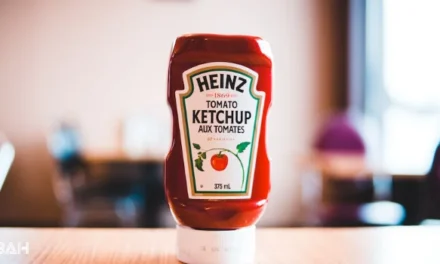Lipase represents a pivotal enzymatic ingredient during cheese manufacturing. However, uncertainty prevails over its potential permissibility given the possibility of animal derivation. This comprehensive guide examines lipase sources, processing methods, usage contexts and considerations relative to halal standards for observant Muslim consumers and cheese producers alike.
Defining Lipase and Its Integral Role in Cheesemaking
Lipase denotes any pancreatic enzyme that catalyzes the hydrolysis of fats (lipids) into constituent fatty acids and glycerol. In the context of cheese production, lipase performs partial breakdown of milk fats to enhance flavor and texture properties during the maturation stages for numerous aged cheese varieties.
For instance, lipase confers the characteristic sharp, picante taste in aged gouda through lipolysis. Meanwhile, it facilitates the development of nutty or buttery notes in maturing cheddar or parmesan. The biochemical changes arising from milk fat hydrolysis also lend improved consistency and melting characteristics.
Thus lipase constitutes an integral cheesemaking ingredient that complements the curd forming and milk coagulating functions of rennet and pepsin. Indeed, the optimal synergistic activity between lipase, rennet and pepsin enables the crafting of countless fine cheese preparations across Asiago, Camembert, cheddar, Colby, feta, gouda, mozzarella, parmesan and Swiss types along with artisanal varieties.
While animal sources provided the original lipases in traditional cheesemaking, alternate halal-friendly options now exist through plant sources like wheat germ or microbial fermentation of fungi like Aspergillus oryzae or Rhizopus species using permissible substrates. The following sections elucidate the halal classification criteria for evaluating these lipase sources along with manufacturing and usage guidelines.
Prerequisites in Islam for Classifying Enzymes as Halal
According to Islamic jurisprudence, for lipase or any functional food enzyme to qualify as halal, it must originate from properly slaughtered halal animal sources or permissible non-animal sources. Moreover, to earn halal certification, enzymes must satisfy the following conditions stipulated by certification bodies like the Islamic Food and Nutrition Council of America (IFANCA):
-
The enzyme cannot derive from pork or improperly slaughtered animals that did not undergo ritual zabiha slaughter per Islamic tradition. This precludes non-halal animal lipase sourcing.
-
Production equipment must prevent any contamination with non-halal substances. This necessitates dedicated halal manufacturing lines.
-
Halal compliant labeling and identification helps inform Muslim consumers about the integrity of the enzyme source, processing and final certification.
Thus, both the original source as well as processing protocols must adhere to Islamic directives for qualifying halal status, especially for safety-sensitive ingredients like enzymes used in food production.
Evaluating the Halal Status of Various Lipase Sources and Manufacturing Methods
Commercial lipase supplies typically originate from either livestock animal sources, plant sources or microbial fermentation sources. The following breakdown analysis each route relative to halal considerations:
Animal-Sourced Lipase
- Traditionally derived from the stomachs or pancreases of young calves, lambs or kid goats after halal ritual sacrifice, this represents a permissible option.
- However, cheese manufacturers rarely disclose the animal source of lipase fully on packaging.
- Risk also exists for contamination with haram enzymes within common production equipment.
- Thus, animal lipase cannot receive halal certification currently despite likely initial halal slaughter.
Plant-Sourced Lipase
- Lipases sourced from halal plant materials like wheat germ, rice bran or sweet lupine comply with Islamic directives.
- Olives also contribute notable levels of halal-friendly plant lipase.
- The plant enzymes operate identically to their animal counterparts while avoiding unlawful contamination.
- Thus, vegetal lipases qualify for halal certification to enable halal cheesemaking.
Microbially-Sourced Lipase
- Microbes like fungi belonging to Aspergillus, Rhizopus and Penicillium genera or yeasts can produce lipase through a fermentation process using halal media sources.
- However, production protocols must prevent residual alcohol or pork marrow hydrolysates from entering into the final yield.
- Provided completely halal equipment and substrates get used, microbial lipase also warrants halal certification for cheese production.
Therefore, both plant and microbial lipase varieties satisfy halal requirements due to their permissible origins and manufacturing processes. The following section provides best practice guidelines for maintaining halal integrity throughout lipase usage in the cheese manufacturing lifecycle.
Guidelines for Halal Compliant Use of Lipase in Cheese Production
To prevent unlawful contamination and certify the halal status of any lipase enzyme used for crafting cheese varieties destined for Muslim consumers, dairy product manufacturers need to implement the following protocols:
Sourcing and Procurement
- Specify animal lipase as exclusively originating from the stomachs of properly halal slaughtered young calves or cattle after ritual sacrifice rather than other livestock
- Obtain plant lipase from verified halal agricultural sources like wheat or rice bran
- Source microbial lipase from reputed fermentation suppliers ensuring completely halal growth substrates
Manufacturing and Processing
- Utilize dedicated equipment for halal cheesemaking ingredients
- Sanitize all apparatus between production runs to prevent protein or lipid cross-contamination
- Conduct ingredient quality control testing to verify absence of alcohol or other contaminants
Handling, Packaging and Storage
- Label finished cheese products as halal only when all constituents including lipase enzyme are affirmatively halal
- Package halal certified cheese varieties separately from other conventional lines
- Segregate inventory storing certified halal cheese ingredients like lipase
Meanwhile, Muslim consumers looking to purchase cheese containing reliable halal lipase have the following options:
- Seek out credible halal certification seals like those issued by IFANCA or local Canadian halal authorities
- Call or email manufacturers if uncertain about enzyme sources used within cheese ingredients
- Opt for lipase-free vegetarian cheese varieties to maximize permissibility
- Avoid non-transparent cheese products potentially containing speculative lipase enzymes or other animal-derived ingredients
Compliance at production, retail and consumption phases ensures the halal integrity, purity and permissibility of lipase use within cheese manufacturing workflows so that Muslims can enjoy these products without hesitation.
Conclusion – Evaluating Contexts for the Halal Suitability of Lipase
In summary, the halal classification of any lipase enzyme preparation centers on properly assessing both its source and manufacturing method:
- Animal lipase requires confirmed halal slaughtered sourcing besides halal handling precautions to allow usage
- Vegetable lipase sources comply with Islamic directives inherently making them broadly permissible
- Microbial lipase necessitates halal verified substrates and production checks before qualification
Furthermore, diligent efforts by cheese makers to implement halal protocols and full transparency by companies on enzyme sources also prove paramount. This allows Muslim consumers to make informed choices aligned with their faith obligations when selecting cheeses incorporating lipase or other enzymes.
With global halal cheese demand projected to reach $81 billion by 2025, the incentives exist for manufacturers to satisfy this market through proper halal certification of all ingredients. Lipase equalizes as a key focal point for its frequent cheese application but current ambiguous status. Fortunately, expanding availability of plant and microbial lipase alternatives synthesized under halal conditions enables accessible paths for the industry to progress ethical cheese diversity.
Frequently Asked Questions: Is Lipase Halal?
The process of determining if lipase is halal involves identifying the source of the enzyme and ensuring that it is derived from permissible sources, such as microbial sources or animals slaughtered according to Islamic requirements.
Can lipase be derived from pig sources?
No, lipase should not be derived from pig sources as consuming any products derived from pigs is not permissible in Islamic dietary laws.
Is lipase derived from microbial sources considered halal?
Yes, lipase derived from microbial sources is considered halal as it does not involve the use of animals, including pigs, in its production.
Is lipase derived from animals other than pigs considered halal?
Lipase derived from animals other than pigs, such as cattle or calves slaughtered according to Islamic requirements, can be considered halal if the purification process ensures compliance with Islamic dietary laws.
Are cheese products made using lipase and rennet considered halal?
Cheese products made using lipase and rennet can be considered halal if the enzymes are derived from permissible sources, such as microbial or vegetable sources, and the production process complies with Islamic dietary laws.
How can consumers determine the halal status of lipase in cheese products?
Consumers can determine the halal status of lipase in cheese products by checking the ingredient list to ensure that the enzymes used, including lipase and rennet, are derived from permissible sources and comply with Islamic dietary laws.
What should individuals look for in the ingredient list to ensure the halal status of lipase in cheese products?
Individuals should look for specific information in the ingredient list, such as the sources of the enzymes used to make cheese, including whether they are derived from microbial or vegetable sources, and if they are halal-certified.
Are lipase and rennet both needed to make cheese?
Yes, lipase and rennet are both enzymes needed to make cheese, and their halal status depends on their sources and compliance with Islamic dietary laws.
What are the implications of using lipase and rennet that are not halal in cheese production?
Using lipase and rennet that are not halal in cheese production can render the cheese products non-compliant with Islamic dietary laws and unsuitable for consumption by individuals following halal dietary requirements.
Are lipase and rennet produced by micro-organisms considered halal?
Yes, lipase and rennet produced by micro-organisms can be considered halal as long as they are derived from permissible sources and the production process complies with Islamic dietary laws.





